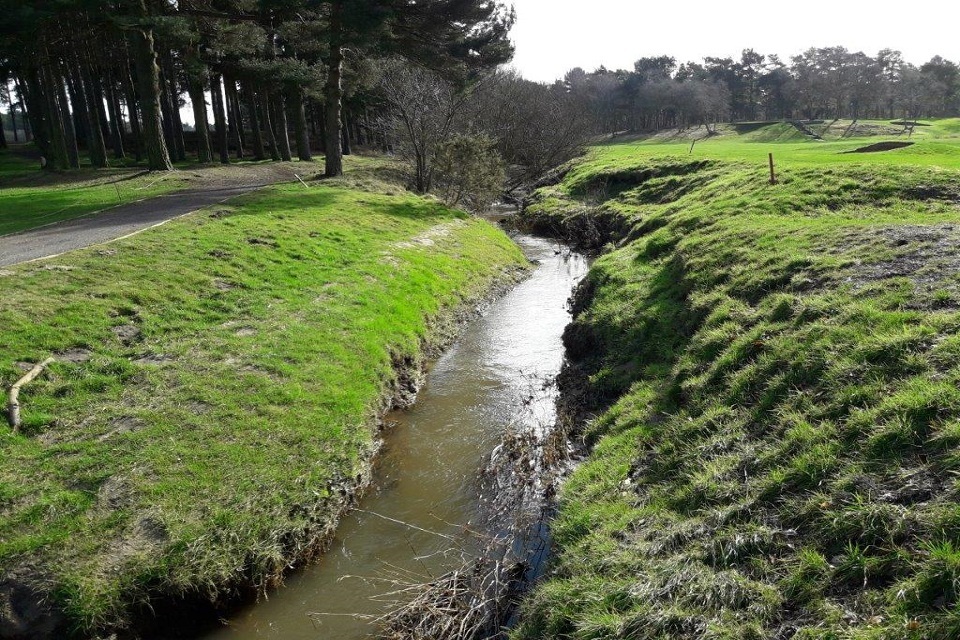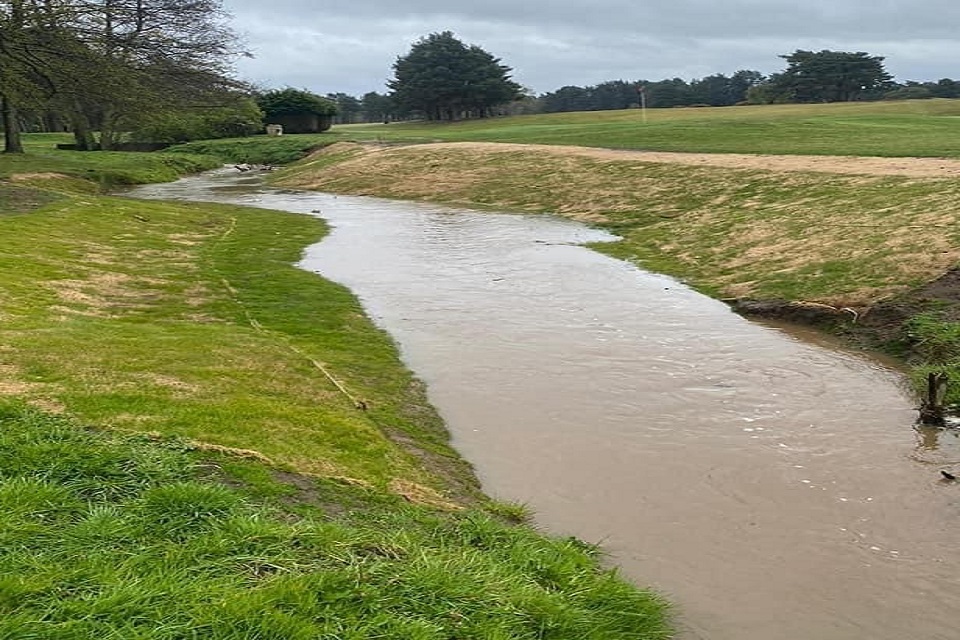Chalk stream strategy launched to protect ‘England’s rainforests’
The Environment Agency has today welcomed a new strategy launched to protect England’s chalk streams.

It is estimated that 85% of the world’s chalk streams are in England and around 10% of these are in Lincolnshire.
The report, published 15 October by the Catchment Based Approach’s Chalk Stream Restoration Group, sets out recommendations of how to enhance these precious habitats.
Chalk streams are a rare and valuable habitat, often referred to as England’s equivalent of rainforests. It is estimated that 85% of the world’s chalk streams are in England and around 10% of these are in Lincolnshire.
Most water we drink in the east comes from rainwater stored deep beneath our feet in natural chalk ‘aquifers’, which feed our chalk streams. Chalk streams also need good water quality for different species of fish, plants and insects to flourish. However they face significant challenges in the 21st century due to complex problems worsened by climate change and population growth.
The Environment Agency is a key partner in the Lincolnshire Chalk Streams Project, which seeks to protect and restore the county’s chalk streams.
One of their projects has been looking at ways to restore the River Rase. As the banks were eroding, this caused sediment to build up in the river, which was having a negative impact on the ecology.

Market Rasen Golf Course before.
Working with the landowner, Market Rasen Golf Club, they restored 1 kilometer of the chalk stream by installing leaky barriers and online ponds, and re-profiling banks. These measures reduced the erosion and allowed more water to flow through the system, leading to a more diverse ecology and improving the water quality. Landowners have also been given land management advice on how to protect the chalk stream, and the team have been exploring opportunities for future habitat projects.

Market Rasen Golf Course after.
Norm Robinson, Environment Agency area director for Lincolnshire and Northamptonshire, said:
We are very lucky in Lincolnshire to have our wonderful chalk streams. These internationally important habitats are a source of much pride, and through the good work of our partners - the Lincolnshire Chalk Streams Project - we are able to protect and restore them for all to enjoy.
We welcome the Chalk Stream Restoration Group’s strategy as it gives us an opportunity to work in a co-ordinated way to achieve the most we can for these globally unique habitats.
Recommendations in the strategy include enhanced status to drive investment in water resources and restoring physical habitat and biodiversity. The strategy has bought together partners including the Environment Agency, Natural England, Defra, water companies and environmental organisations.
Environment Agency Chair Emma Howard Boyd said:
England is home to 85% of the world’s chalk streams and their future depends on collective action from water companies, farmers, and landowners as well as government and regulators.
No one should undermine the value of chalk streams, and today’s report adds clarity and certainty about what is expected of all their users.
The National Framework for Water Resources encourages water companies to open up new infrastructure to reduce reliance on chalk aquifers. This is one of the many good proposals in today’s report that needs collective action.
Natural England Chair Tony Juniper said:
Chalk streams are unique natural features, and considering that most such rivers in the world are found here in England, we have a particular responsibility to ensure that they are in good health.
These habitats are subject to a complex range of pressures, however, from pollution arising from road run-off, agriculture and sewage, to low flow resulting from abstraction for public water supply and physical damage to the water courses.
We look forward to working with others to ensure this new strategy leads to the kind of joined-up partnership action needed to address these pressures, protecting and restoring chalk streams for future generations to enjoy.
Additional information
-
The launch of the new strategy is taking place on the River Mimram and will be attended by Minister Pow, Emma Howard Boyd and Tony Juniper.
-
The strategy was published by the Chalk Stream Restoration Group, which is part of the Catchment Based Approach. It will be available from Friday 15 October on the Catchment Based Approach website.
-
This strategy is for everyone who has responsibility for, or uses, chalk streams. It sets out actions and recommendations for government, regulators and the water industry on water resources, water quality and habitat restoration and management.
-
The Catchment Based Approach is an inclusive, civil society-led initiative. They work in partnership with government, local authorities, water companies, businesses and more, to maximise the natural value of our environment.
-
The Catchment Based Approach’s Chalk Stream Restoration Group is a subgroup of the National Support Group. It brings together organisations with an interest in chalk stream management, recognising that protection of chalk streams requires everyone to play their part.
-
The aim of the group is to develop a chalk streams management and restoration strategy for England, and to ensure actions are in place to drive improvements in the short, medium and long term. It will consider water quantity, water quality and habitat restoration, but the plan will deliver an integrated catchment approach to chalk stream management.
-
The group is made up of representatives from the Environment Agency, Natural England, Ofwat, Water UK, World Wide Fund for Nature, Angling Trust, Salmon and Trout Conservation, The Rivers Trust, Wild Trout Trust and Wildlife Trusts.
-
Implementing this strategy takes us a step closer to meeting the government’s 25-Year Environment Plan target of 75% of England’s chalk streams to get to their natural state as soon as practicable.